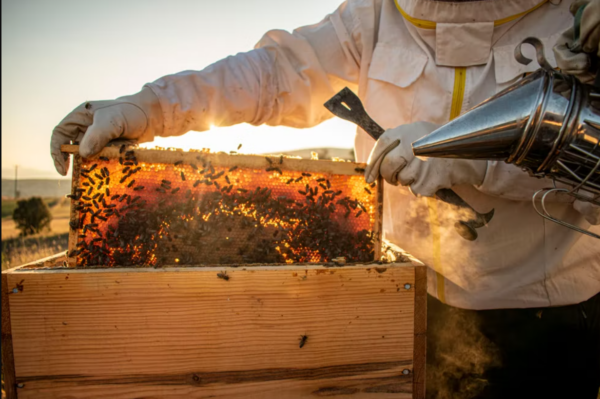Since the number of illnesses that are resistant to antibiotics continues to rise, researchers are looking at the natural healing capabilities that honey possesses in the hopes of developing new antimicrobial medications.
According to research published in the medical journal Lancet, antimicrobial-resistant bacterial infections were responsible for the deaths of more than 1.2 million individuals over the world in 2019.
Over one million people died globally from antibiotic-resistant infections in 2019
The growing resistance of bacteria to antibiotics poses a significant risk to world health and security because it raises the possibility of a recurrence of the “pre-antibiotic period.”
According to Professor Les Baillie of the Faculty of Pharmacy at Cardiff University, “We are witnessing bacteria that has evolved, that is resistant to practically all antibiotics, and we are nearing the stage where the cupboard is empty.”
The professor said, while speaking to the BBC, that the university’s research into honey is an attempt to revert to ancient cures “to see if we can learn from our predecessors.”

Honey has been used for millennia as a natural antibacterial and wound treatment.
It has medicinal effects because to high sugar content, low pH, hydrogen peroxide, and bee-derived peptides, according to Cardiff University.
“Honey also includes antibacterial phytochemicals which constitute a significant source of leads for medication development for microbial infections.”
Honey has been used as a natural antibiotic for ages.
Cardiff University researchers are searching for and isolating antibacterial substances.
Scientists use honey as a “drug discovery tool” to test if bees visit antibiotic-containing plants. After finding the plant, they may study its chemicals.
Dr. Jennifer Hawkins said: “Our aim was to use bees as private investigators and send them out to investigate every flowering plant in the country.
They collect nectar with phytochemicals, some of which may be antimicrobial, and pollen with the plant’s Genetic imprint during each visit.
The institution cited New Zealand Manuka honey’s advantages.

